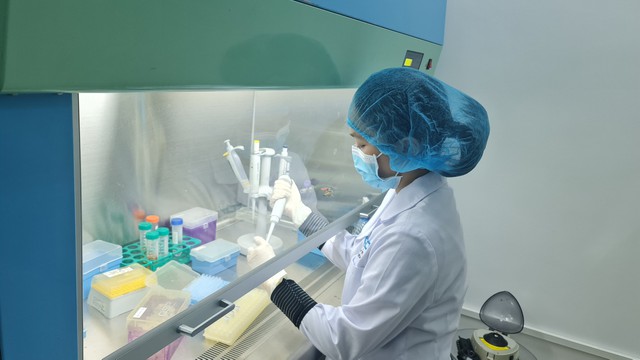Ha Noi to collect DNA samples from relatives of unidentified martyrs
VGP - The Ha Noi People's Committee issued a plan to collect DNA samples from relatives of unidentified martyrs in the city for the period 2024-2025.

Illustration photo
Accordingly, Ha Noi will establish an identification database where information on martyrs' remains will be shared, making it possible to trace the personal information of unidentified martyrs.
The municipal government has assigned the Ha Noi Department of Labor, War Invalids and Social Affairs to take the lead and coordinate with relevant units to compile DNA information on the remains of unidentified martyrs and their relatives.
Ha Noi police and socio-political organizations are asked to cooperate in creating a repository of DNA of the fallen from the National Population Database and in the process of issuing ID cards.
In order to persuade the families of the unidentified martyrs to provide their DNA samples, the city police will emphasize the humanitarian motive. The elderly relatives of the martyrs and those who are in poor health, especially the mothers of the martyrs, will be given priority in taking DNA samples.
Ha Noi police and the task force are responsible for collecting the questionnaires and safely transporting the DNA samples. The district government and police will be responsible for completing the information from the questionnaire of the relatives of the fallen combatants.
According to a report by the Ha Noi People's Committee, taking samples from unidentified martyrs and their relatives for examination and storage in the gene bank is a step forward in verifying the identity of their remains.
Earlier, Gene Bank (DNA) of martyrs whose information and relatives have not yet been identified was launched on the morning of July 23, in Ha Noi.
MoLISA Minister Dao Ngoc Dung said that our country has 1.2 million martyrs who fell in the war, of which hundreds of thousands of martyrs have not been gathered or identified; including more than 23,000 remains of martyrs remaining on the battlefield.
Therefore, for many years, the work of collecting and identifying the remains of martyrs has always been given special attention and priority by the Party and State.
The DNA assessment method has been deployed with nearly 10,000 samples of martyrs' remains and more than 3,000 biological samples of martyrs' relatives. As a result, more than 1,000 identities of martyrs were compared and matched to inform the martyrs' relatives.
The Gene Bank not only opens up hope for more than 300,000 families of people with meritorious service, but also the hope of the entire Party and people of the country that in the not too distant future, all the martyrs who have sacrificed their lives for the cause of protecting the Fatherland will be gathered and its identity determined./.

